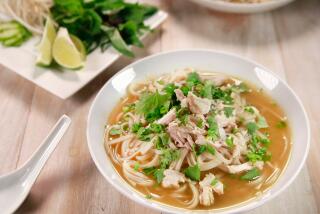Alternatives for the Cold Season
Over hundreds of years, a host of folk medicines has emerged for treating colds and flus. None cure, but many reduce the impact of symptoms.
Echinacea may be the most promising and popular of the herbal remedies. Dried extracts of this daisy-like flowering plant come in tablet or capsule form and are almost universally available in health food stores and pharmacies. Echinacea has been well studied. Its ability to stimulate immune system activity is the key, and it works best if used at the onset of colds and flu symptoms.
I always keep a bottle of 500-milligram capsules of echinacea in my medicine cabinet and in my desk drawer at work. At the slightest suggestion of a cold, I take two capsules daily with water at mealtimes, as recommended. There are numerous brands on the market. Make sure the one you buy is fresh (check the “use by” date) and is well sealed. Pregnant women and people on prescription medications should talk with their doctor before taking echinacea.
Several other herbal remedies may be beneficial. They include astragalus, a traditional Chinese medicine also known as huang qi. It is believed that this herbal remedy, like echinacea, stimulates immune system activity. One study reported that astragalus heightens the production of the cellular protein interferon, stimulating cells to begin defenses against illnesses, including the common cold. As with echinacea, proponents recommend that you start taking astragalus before colds or flu get you down. The root of the plant can be made into tea; it is also available in capsule form or as a tincture, and is generally available in health food stores. I don’t know of any reported side effects.
Zinc may well reduce the length of colds if taken at the first sniffle. You can buy zinc as a throat lozenge or as a spray or gel (it many be more effective in the latter two forms). Don’t use it within a half-hour of consuming citrus products or soft drinks, because the zinc will lose its value. Also, never use zinc lozenges for more than five to seven days--it could suppress immune function, reducing your body’s resistance to all manner of germs.
The old standby of inhaling steam laced with oil of eucalyptus, or rubbing some of the diluted oil on one’s chest, often works to relieve congestion. Peppermint oil or tea tree oil works in much the same way. An important note: Herb vapors sometimes cause problems for asthma sufferers.
Although research results are not consistent, acupuncture and acupressure may help some people, especially to relieve headaches and nasal congestion. You can find licensed acupuncturists listed in the Yellow Pages, and you can check the status of a practitioner’s license by contacting the California Acupuncture Board, a state agency, at (916) 263-2680 or at www.acupuncture.ca.gov.
Garlic is another old standby. It’s often prescribed for its antibiotic qualities. Garlic comes in oil, capsule, tablet and raw form and can be taken in moderation with few side effects. Some research supports the common belief that, taken early and regularly, it will help prevent colds and flu. It is also said to stimulate circulation, aid digestion and reduce high blood pressure. Because garlic is known to decrease the blood’s ability to form clots, it should not be used with anticoagulants or by patients who have platelet disorders.
Elderberry tea is a longtime favorite for treating the symptoms of colds and flu. It is also available in powders and capsules, as well as tea. The tea probably is most beneficial because of the added value of the heat and steam.
There are, of course, many cold and flu symptom remedies on drugstore shelves. Remember when shopping the aisles that the FDA warns us not to give aspirin or other salicylates to children younger than age 18. Young people can get sick or die from a rare condition called Reye’s syndrome if they take these medicines when they have cold or flu symptoms.
If you are not sure whether a product has salicylates, ask your doctor or pharmacist.
And let’s not forget what are probably the two most familiar home remedies for cold and flu season: chicken soup and vitamin C. Studies have shown that chicken soup might actually work because it contains a number of substances that may have beneficial medicinal activity against upper respiratory tract infections, or colds. The news isn’t as good on vitamin C. Megadoses of vitamin C, promoted by the late Linus Pauling, have never been proved to help.
And for those who favor more conventional therapies, such as prescription drugs, bear this in mind: Antibiotics--which many cold and flu sufferers seek out from their doctors--also don’t work against viruses.
*
Barrie R. Cassileth, PhD, is chief of integrative medicine at Memorial Sloan-Kettering Cancer Center in New York. Send questions to drcas [email protected]. Her column appears the first Monday of the month.


